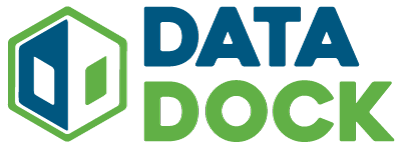Choosing A License For Your Data
When choosing a license for your dataset there are three important factors to consider:
-
If you are using some data that was licensed to you, you must honor the terms of that license. Several license such as CC-BY-SA place a share-alike restriction on the use of the data, such that you must use the same license to publish data derived from the licensed data you used.
-
If you are publishing data on behalf of an organisation, you should ensure that you follow their data licensing policies. These policies may restrict which license you choose.
-
Finally, assuming that you are free of restrictions based on the source data you used or your organisational policies, you should decide about the attribution and share-alike restrictions you want to place on the users of your data.
Attribution
Use an attribute restriction if you want to be recognized for providing the data. That recognition almost always takes the form of an attribution statement this would be something like, “This application uses data from XYZ Corp under a CC-BY license”. Attribution statements typically appear in the about page of an application, or in the page footer on a website.
Requiring an attribution can seem like a minor thing to ask, but consider that if an application uses a wide variety of datasets and is required to provide attribution for all of them, this quickly becomes an administrative issue.
Share-Alike
If you want others to share work derived from your dataset under a similar license, you can choose to enforce this by choosing to license your data under terms that require share-alike. This makes the any work that is derived from the results of your work available to others to reuse.
Choosing this option is a balancing act between the increase in open data that could result from requiring derived datasets to also be published as open data; versus the possibility that your data will not be used when commercial or privacy reasons prevent the opening up of the derived data.
DataDock Dataset Licenses
We currently provide support for 6 different licenses and you can choose a different one of these for each of the datasets you publish.
Restriction Free Licenses
-
CC-0 (Summary / Full Text) - A Creative Commons license that frees your work of copyright restrictions around the world. It does not require attribution, nor does it require that derived works be published as open data. This is the least restrictive of the licenses we currently support.
-
PDDL (Summary / Full Text) - The Public Domain Dedication & Licence from the Open Data Commons allows others to freely share, modify, and use your work for any purpose and without any restrictions. There is no need for attribution or any other restrictions on use of your published data.
Attribution Licenses
-
CC-BY (Summary / Full Text) - A Creative Commons license that requires users to give attribution to you and to indicate if any changes where made. It allows sharing, reuse and transformation of your data for any purpose, including commercial purposes. It does not require that derived works be published as open data.
-
ODC-By (Summary / Full Text) - A license from the Open Data Commons which allows users of your data to copy, distribute and use your data, to produce works from it and to modify, transform and build on the data. The only restriction is that users must attribute any public use of the data or works produced from it.
-
OGL - A license similar to the Creative Commons CC-BY license, widely used in UK Government open data initiatives. This license requires attribution, but it does not require that derived datasets be published as open data.
Attribution Share-Alike Licenses
- CC-BY-SA (Summary / Full Text) - A Creative Commons license that requires users to give attribution to you and to indicate if any changes were made. It allows sharing and allows reuse and transformation of your data for any purpose, including commercial purposes as long as the results are distributed under the same license as your data.
We recommend using CC-0 whenever possible as this provides the most freedom and places the least restrictions on the use and reuse of your data. However you should ensure that you comply with the licensing terms of any source data you have used to create your data as well as with the policies of your organisation.
